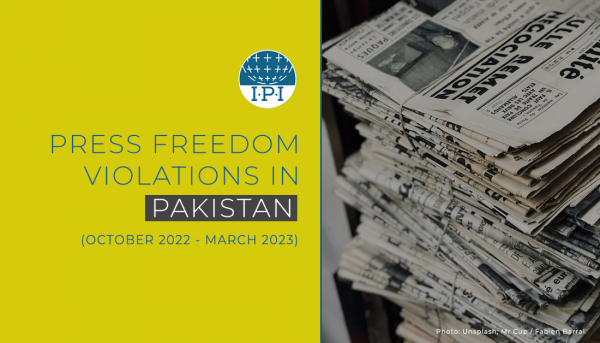Pakistani journalist Hamid Mir, a well known television anchor with the country’s Geo TV, escaped a bid on his life on Monday, after an explosive device was found under his car. The bomb, stuck under the front passenger seat of Hamid Mir’s car, was defused by a bomb disposal squad, according to Geo News. “It was in a metal box attached by magnets to the bottom of the car, under the seat where Mr Mir usually sits,” Bani Amin Khan, Islamabad’s inspector general of police said, according to The Guardian newspaper.
Local and international news outlets reported that the attack may have been in connection with Mir’s coverage of the shooting of teenage activist Malala Yousafzai, for which he received open criticism by the Pakistani Taliban.
“I condemn in strongest possible terms, the planting of a remote controlled bomb in the car of Mr. Hamid Mir, an IPI member and one of the most popular and influential television news anchors in Pakistan,” IPI Executive Board Member Owais Ali, Chairman of Pakistan Press International (PPI) told IPI. “The brazen attempt to intimidate, or worse kill, the leading media personality in Pakistan represents a worsening of the already deplorable safety environment for journalists.”
The remote controlled bomb was reportedly planted while Mir was visiting a busy market area in the posh area of Islamabad, Pakistan’s capital city. Rehman Malik, Minister of Interior, said the improvised explosive devise would have blown the car to pieces, had the bomb exploded.
Hamid Mir, who does not shy away from covering sensitive political and security situation, said he could not be sure who was behind this action, as he had received threats from the Taliban as well as from “state actors”. The journalist has been living under police protection for the past few months, The Guardian noted. Bani Amin Khan reportedly said that one of the guards noticed the explosive device under Mir’s car.
Pakistan is among the deadliest countries for journalists. In an opinion piece published on the IPI website last Wednesday, Owais Ali noted that “at least 48 journalists have been killed in the line of duty in Pakistan in the last 10 years, and 35 of them were deliberately targeted and murdered because of their work. In 2012 alone, five journalists were killed in the country, according to IPI’s Death Watch.”
One more journalist died on Thursday last week after succumbing to injuries he suffered in a twin bomb attack in Karachi. According to the Pakistan Federal Union of Journalists (PFUJ), Saqib Khan, a photojournalist with the Urdu newspaper Ummat, suffered cardiac arrest on the way to the hospital. The two bomb blasts killed four people and injured numerous other ones, including journalists reporting from the scene of the first blast.
Impunity is broadly considered one of the core causes of attacks against journalists in Pakistan. “Over the last 10 years, the murder of Daniel Pearl, a reporter for the US-based Wall Street Journal, was the lone case of a murder of a journalist in Pakistan in which suspects were prosecuted and convicted,” Owais Ali wrote in his article, which analyses violence against the media in his country.


